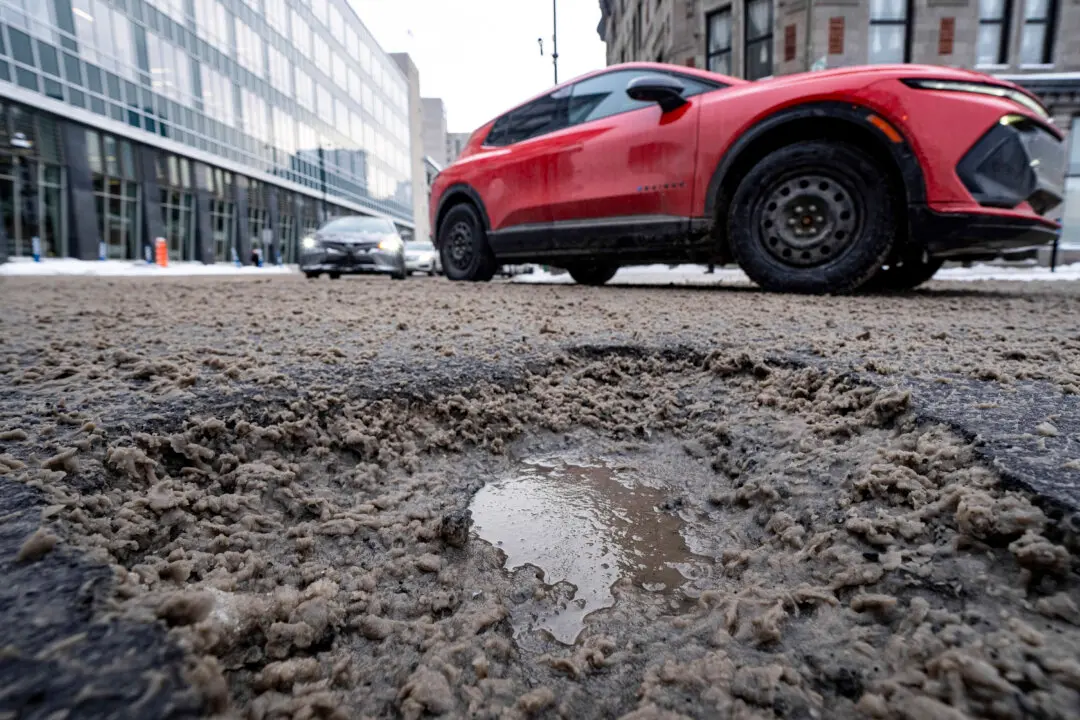MONTREAL—Several Quebec municipalities that want to reduce their use of rock salt are turning to beet juice or wood chips as alternative de-icing options.
Eric Westram, the mayor of Montreal-area Rosemere, says the Swiss have been using wood chips on roads in the Alps instead of salt since 2008 and “there’s no contest.”





